Johannes Zenkert
KIRETT: Knowledge-Graph-Based Smart Treatment Assistant for Intelligent Rescue Operations
Aug 11, 2025Abstract:Over the years, the need for rescue operations throughout the world has increased rapidly. Demographic changes and the resulting risk of injury or health disorders form the basis for emergency calls. In such scenarios, first responders are in a rush to reach the patient in need, provide first aid, and save lives. In these situations, they must be able to provide personalized and optimized healthcare in the shortest possible time and estimate the patients condition with the help of freshly recorded vital data in an emergency situation. However, in such a timedependent situation, first responders and medical experts cannot fully grasp their knowledge and need assistance and recommendation for further medical treatments. To achieve this, on the spot calculated, evaluated, and processed knowledge must be made available to improve treatments by first responders. The Knowledge Graph presented in this article as a central knowledge representation provides first responders with an innovative knowledge management that enables intelligent treatment recommendations with an artificial intelligence-based pre-recognition of the situation.
* LWDA'23, KIRETT project, University of Siegen, Germany
Explainable Graph-based Search for Lessons-Learned Documents in the Semiconductor Industry
May 18, 2021

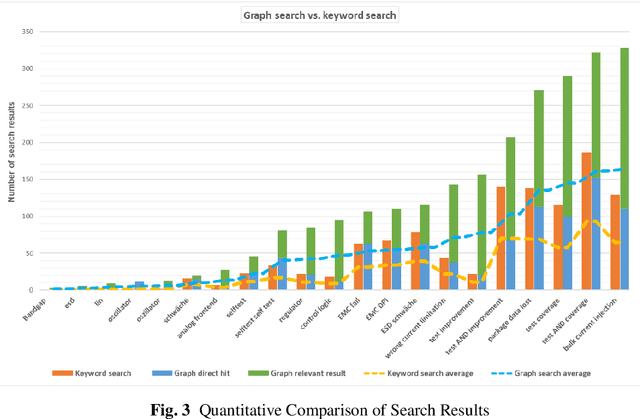
Abstract:Industrial processes produce a considerable volume of data and thus information. Whether it is structured sensory data or semi- to unstructured textual data, the knowledge that can be derived from it is critical to the sustainable development of the industrial process. A key challenge of this sustainability is the intelligent management of the generated data, as well as the knowledge extracted from it, in order to utilize this knowledge for improving future procedures. This challenge is a result of the tailored documentation methods and domain-specific requirements, which include the need for quick visibility of the documented knowledge. In this paper, we utilize the expert knowledge documented in chip-design failure reports in supporting user access to information that is relevant to a current chip design. Unstructured, free, textual data in previous failure documentations provides a valuable source of lessons-learned, which expert design-engineers have experienced, solved and documented. To achieve a sustainable utilization of knowledge within the company, not only the inherent knowledge has to be mined from unstructured textual data, but also the relations between the lessons-learned, uncovering potentially unknown links. In this research, a knowledge graph is constructed, in order to represent and use the interconnections between reported design failures. A search engine is developed and applied onto the graph to answer queries. In contrast to mere keyword-based searching, the searchability of the knowledge graph offers enhanced search results beyond direct matches and acts as a mean for generating explainable results and result recommendations. Results are provided to the design engineer through an interactive search interface, in which, the feedback from the user is used to further optimize relations for future iterations of the knowledge graph.
Knowledge Discovery from Social Media using Big Data provided Sentiment Analysis (SoMABiT)
Jan 16, 2020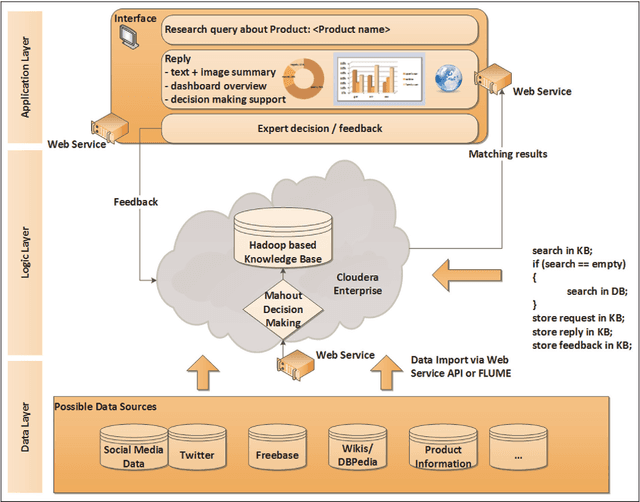
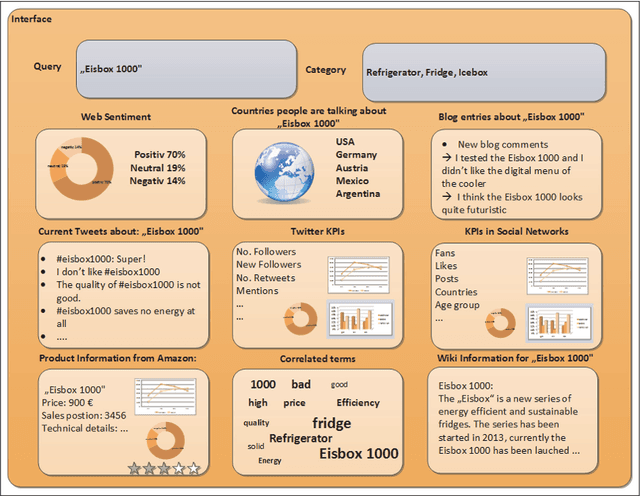
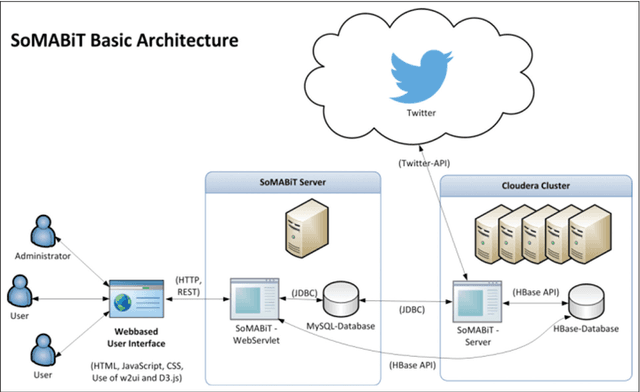
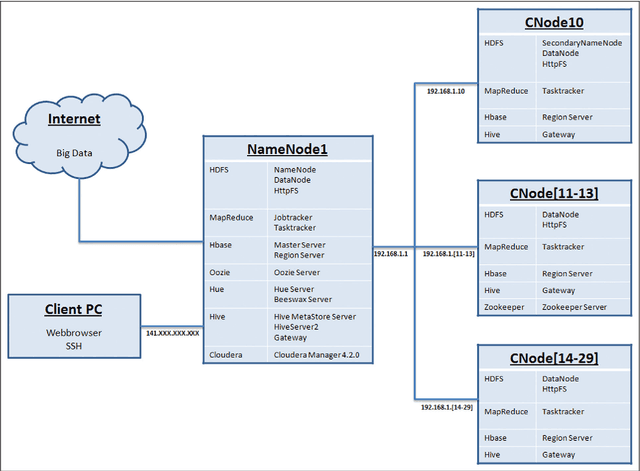
Abstract:In todays competitive business world, being aware of customer needs and market-oriented production is a key success factor for industries. To this aim, the use of efficient analytic algorithms ensures a better understanding of customer feedback and improves the next generation of products. Accordingly, the dramatic increase in using social media in daily life provides beneficial sources for market analytics. But how traditional analytic algorithms and methods can scale up for such disparate and multi-structured data sources is the main challenge in this regard. This paper presents and discusses the technological and scientific focus of the SoMABiT as a social media analysis platform using big data technology. Sentiment analysis has been employed in order to discover knowledge from social media. The use of MapReduce and developing a distributed algorithm towards an integrated platform that can scale for any data volume and provide a social media-driven knowledge is the main novelty of the proposed concept in comparison to the state-of-the-art technologies.
 Add to Chrome
Add to Chrome Add to Firefox
Add to Firefox Add to Edge
Add to Edge